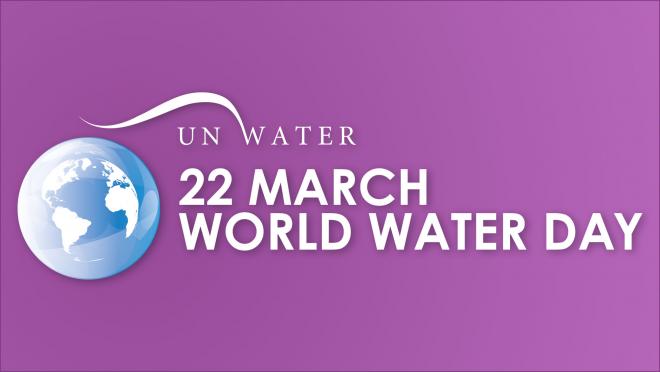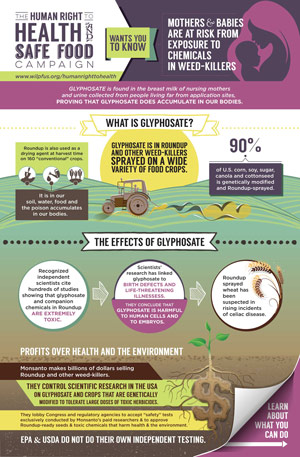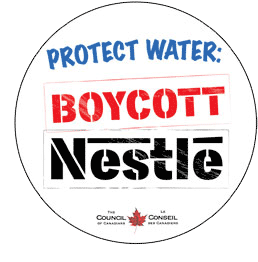Why waste water?
Published on March, 59 2017
BY Nancy Price, Earth Democracy
March 22 is United Nations World Water Day, time for some local education and action, and to again say “No” to bottled water and “No” to using glyphosate-based herbicides, such as Roundup.
 The 2017 theme—“Why Waste Water?”—is about reducing and reusing wastewater. World Water Day’s excellent factsheet lays out the issues around wastewater: how to deal with sewage accumulation from humans and animals (beef and dairy cattle, hogs, chickens) in industrial confined animal feeding operations (CAFOs); and what industrial, mining, and agricultural practices produce that must then be treated and processed before being added to water sources, used to irrigate agricultural crops, put into aquifers, or reprocessed for drinking water.
The 2017 theme—“Why Waste Water?”—is about reducing and reusing wastewater. World Water Day’s excellent factsheet lays out the issues around wastewater: how to deal with sewage accumulation from humans and animals (beef and dairy cattle, hogs, chickens) in industrial confined animal feeding operations (CAFOs); and what industrial, mining, and agricultural practices produce that must then be treated and processed before being added to water sources, used to irrigate agricultural crops, put into aquifers, or reprocessed for drinking water.
The UN Sustainable Development Goal (SDG) target 6.3 requires the United Nations by 2030 to “improve water quality by reducing pollution, eliminating dumping and minimizing release of hazardous chemical and materials, halving the proportion of untreated wastewater and substantially increasing recycling and safe re-use globally.”
The question is: Under the Trump agenda to take all the teeth out of all regulation, and it’s manifestation globally, how will this goal be accomplished in the US and worldwide? And, with every increasing encroachment of corporate money and interests at the United Nations, how can SDG 6.3 be accomplished without takeover by the private corporate sector, which increases costs and accountability, to say nothing of decreasing unionized labor with good pay and health and pension benefits?
Here’s what you can do:
-
One place for WILPF women to start on decreasing water contamination is to work with our Human Right to Health and Safe Food Campaign and take local action to reduce the use of Roundup in your community.

- Our Campaign website contains issues to “Learn More” about and resources so you can “Get Busy” now in your planning. In particular, work with your local park commissions and school boards to document what they are using on community and school parks, to challenge use of any glyphosate or 2,4-D-based products and to make sure that they are moving toward implementing integrated pest management (IPM).
- Be sure to order your Infographic Cards now for tabling and other World Water Day events.
- Sign the Protect Water: Boycott Nestlé Pledge on the Council of Canadians website.



